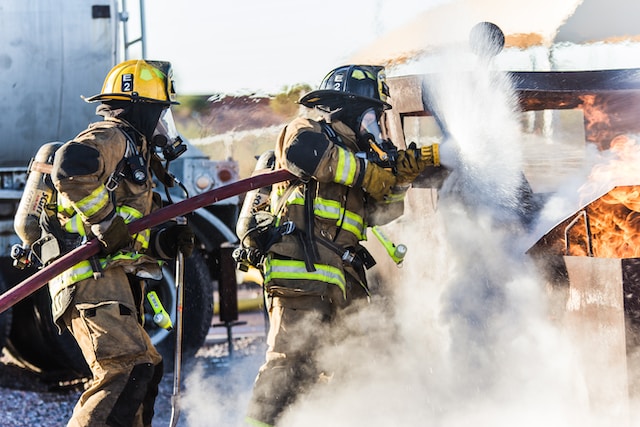In the heart of nature’s fury, US wildland firefighters stand as our first line of defense, battling raging infernos that threaten lives and landscapes. These brave men and women put their lives on the line to protect our forests and communities. However, their valiant efforts are currently threatened by a different kind of blaze – a political feud among Republicans in Congress. The implications of this feud on the pay and support for these firefighters are far-reaching, and in this article, we’ll explore the significance of federal funding and the potential consequences of political disputes on wildfire management.
US Wildland Firefighters: Guardians of Nature
US wildland firefighters are the unsung heroes who combat wildfires that ravage millions of acres each year. Their dedication and resilience are remarkable, as they work long hours under extreme conditions to contain and extinguish fires. Yet, the challenges they face extend beyond the physical dangers of firefighting.
The Role of Federal Funding
One of the cornerstones of ensuring fair compensation and necessary resources for wildland firefighters is federal funding. The funding allocated to federal firefighting programs plays a pivotal role in maintaining adequate staffing levels, providing advanced firefighting equipment, and delivering comprehensive training. This financial support not only enhances the efficiency of firefighting operations but also underscores the nation’s commitment to valuing the efforts of these brave individuals.
Threatening Wildland Firefighter Pay: The Republican Feud
The ongoing feud among Republicans in Congress has raised concerns about the stability of federal funding for firefighting programs. As political tensions rise, budget allocations for essential services like wildfire management could be at risk of getting caught in the crossfire. Such uncertainties create an unsettling environment for wildland firefighters, who depend on consistent funding to carry out their duties effectively.
Consequences of Political Disputes on Wildfire Management
- Understaffing: Inadequate funding resulting from political disputes could lead to understaffing of firefighting crews. This not only endangers the lives of firefighters but also diminishes the capacity to swiftly contain fires, allowing them to spread further and cause more destruction.
- Outdated Equipment: Without proper funding, acquiring and maintaining advanced firefighting equipment becomes challenging. Outdated equipment hampers firefighting efforts and puts firefighters at a disadvantage when facing fast-spreading wildfires.
- Training and Preparedness: Comprehensive training is crucial for wildland firefighters to adapt to the evolving nature of wildfires. Funding shortages could hinder training programs, leaving firefighters ill-prepared to handle complex firefighting scenarios.
- Community Safety: The impact of wildfires goes beyond the forest. Threatened funding can hamper the efforts to safeguard communities in the path of wildfires, potentially leading to greater property loss and human displacement.
Conclusion
The dedication and sacrifice of US wildland firefighters deserve unwavering support from all levels of government. The ongoing feud among Republicans in Congress threatens the very foundation of this support – federal funding. To ensure that these brave individuals can continue their vital work without compromise, it is imperative for political leaders to prioritize the well-being of both firefighters and the communities they protect. Only through united efforts and consistent funding can we effectively manage wildfires and safeguard both our natural landscapes and the courageous individuals who defend them.












